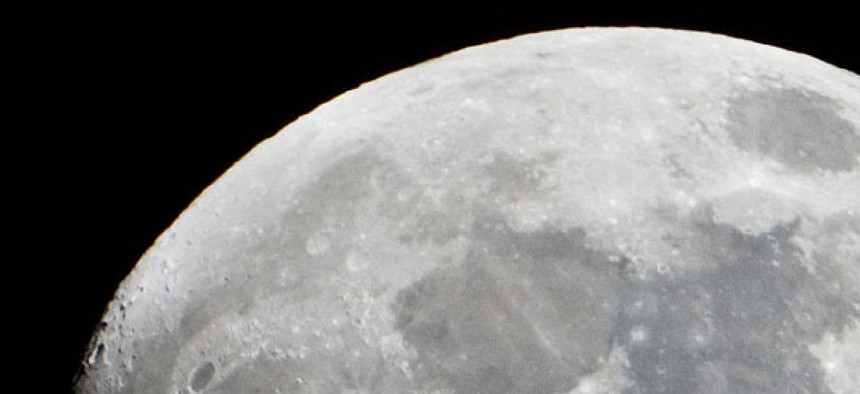
NASA
Gingrich wants U.S. base on the moon
When 13,000 Americans are living on the moon, they can petition to become a state, GOP contender says.
COCOA, Fla.--Appealing to residents of the state's economically struggling "Space Coast," Republican presidential candidate Newt Gingrich promised to have a permanent U.S. base on the moon by the end of his second term as president.
To cheers and applause in an area that has suffered major job losses since the cancellation of the space shuttle, Gingrich said, "By the end of my second term, we will have the first permanent base on the moon and it will be American.
"We will have commercial near-Earth activities that include science, tourism, and manufacturing, and are designed to create a robust industry precisely on the model of the development of the airlines of the 1930s, because it is in our interest to acquire so much experience in space that we clearly have a capacity that the Chinese and the Russians will never come anywhere close to matching."
He also said that by the end of 2020, the country would have "the first continuous propulsion system in space" capable of allowing people travel to Mars. "I am sick of being told we have to be timid, and I am sick of being told we have to be limited in technologies that are 50 years old," the former House speaker told the crowd at a "space roundtable" he hosted at a Holiday Inn.
Responding to rival Mitt Romney's criticism of his proposal for a lunar settlement, Gingrich said, "When we have 13,000 Americans living on the moon, they can petition to become a state. And here's the difference between romantics and so-called practical people. I wanted every young American to say to themselves, 'I could be one of those 13,000. I could be a pioneer. I need to study science and math and engineering. I need to learn how to be a technician. I can be a part of building a bigger, better future.' "
Gingrich said he has had a "deep passion" for space travel since he was boy and read Missiles and Rockets. He also said he was fascinated by the Sputnik, the first artificial satellite to orbit the Earth.
NEXT STORY: The Sky’s the Limit






